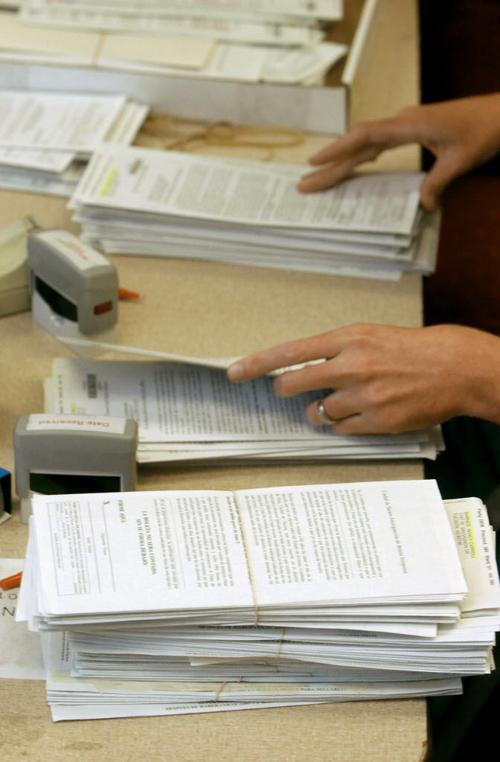PHOENIX — The state Democratic Party wants a federal judge to block what it claims are planned voter intimidation tactics by the Republican Party and the Trump campaign.
In a lawsuit filed Monday in U.S. District Court here, attorney Mark Elias claims the GOP nominee has a goal of “voter suppression.” And Elias said Donald Trump is carrying that out “by using the loudest microphone in the nation to implore his supporters to engage in unlawful intimidation at Arizona polling places.”
And Elias cited comments that state Republican officials gave to Capitol Media Services earlier this year as proof of their role in the effort.
Attorney Tim LaSota, who represents the state GOP, acknowledged the party wants people to show up at polling places and keep their eyes open. But he said nothing being pushed by Chairman Robert Graham or spokesman Tim Sifert is illegal.
“The stuff we’re talking about is legitimate poll-watching efforts,” he said.
“People have a right to be at the polls,” LaSota said, whether it’s to keep watch, hand out literature or even talking to — and questioning — people coming and going. “That’s called protected free speech.”
But Elias is arguing to Judge John Tucci that what Trump and the GOP are urging voters to do violates not only state election laws but federal statutes designed to protect people going to the polls from intimidation.
Some of what Elias cites as evidence is Trump’s repeated accusations that the system is “rigged” and the election could be stolen by Hillary Clinton and her supporters.
That includes allegations that people not in this country legally would be going to the polls, and that 14 percent of non-citizens are registered to vote. Elias said that amounts to contending that “Latino voters are undocumented immigrants whom the federal government has allowed to pour into this country specifically to vote in the election.”
More to the point, Trump told supporters at one rally to “check out areas because a lot of bad things happen, and we don’t want to lose for that reason.”
But Elias also is using the comments Graham made to Capitol Media Services about how the Republican poll watchers will be the eyes and ears of the GOP to identify people who attempt to drop off multiple early ballots in violation of a new state law.
Elias pointed out to Tucci there are restrictions in state law on what can be done by those observers who have been officially designated by a political party to be poll watchers and sit inside polling places. That includes a prohibition against photography and even against approaching a voter inside the polling place or within 75 feet.
But Graham said in August the observers are still free to follow voters out into the parking lot, ask them questions, take their pictures and photograph their vehicles and license plate. That information, he said, might give police and prosecutors the information they need to bring charges.
That was echoed by Sifert.
“If a poll observer sees something they are free to go outside that 75-foot limit,” he said.
“That’s where they can turn on their phone to take video or pictures or something like that,” Sifert continued.
That also includes asking the voter his or her name and why there were multiple ballots.
And if the voter tells the observer to shove off?
“They can take a picture of the person,” he said, as well as a photo of the license plate on the voter’s car which should help identify the voter.
Elias wants Tucci to issue an order blocking individuals from “questioning, interrogating, or verbally harassing voters or prospective voters.”
He also wants a ban on “following, taking photos of, or otherwise recording voters or prospective voters.”
LaSota, however, said such a broad-based ban would preclude legitimate political activities.
He pointed out that candidates and their surrogates often stand outside polling places, approach would-be voters and hand out literature and potentially even engage them in conversation.
“You can go up to someone and ask them a question,” LaSota said, the same right that allows reporters to walk up to people and question them. “That isn’t illegal in America.”
Still, even LaSota acknowledged there are limits.
While some of the charges in the legal papers filed here are specific to Arizona, similar lawsuit were also being filed Monday in the other battleground states of Pennsylvania, Ohio and Nevada.





